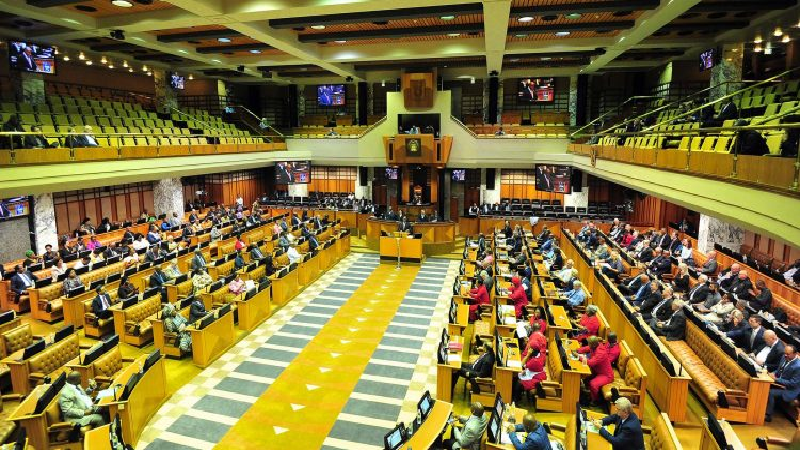
South Africa’s new members of parliament will elect the country’s next president on Friday during their first sitting, the office of the chief justice said in a statement on Monday.
South Africans on May 29 voted for national and provincial lawmakers in an election which saw President Cyril Ramaphosa’s ruling African National Congress (ANC ) party – in power since 1994 – fall short of getting a majority for the first time.
Chief Justice Raymond Zondo on Friday will administer the oath or affirmation to the newly elected 400 members of parliament who will then elect a speaker and deputy speaker.
Later he will later preside over the election of the president.
This is the first time that a candidate from the ruling ANC is not guaranteed an automatic win as they lost their parliamentary majority in the May 29 elections.
In South Africa, voting is done on a party basis, and the parties get seats in parliament.
The national lawmakers elect the president, which means that the party which wins the election gets ultimate power in the country.
The ANC candidate will be Ramaphosa, who could win with help from smaller parties.
Once led by global icon Nelson Mandela, the ANC secured 159 seats in the assembly, down from the 230 it got in 2019. The party had secured more than 60% in all elections since 1994, except in 2019, when its share dipped to 57.5%.
This time the ANC got only 40.18% of the vote putting it in a difficult position to form a government on its own.
Last week, Rampho sa announced that the ANC has agreed to form a government of national unity after losing its majority.
He said the party had agreed to invite political parties to form a government of national unity, the best option to move the country forward as no party had an outright win.
“The purpose of the government of national unity must be, first and foremost, to tackle the pressing issues that South Africans want to be addressed. These issues include job creation and the growth of our economy that will be inclusive and the high cost of living,” he said.
Ramaphosa also said the unity government will look at service delivery and crime and corruption, which were among the main election issues raised by political parties.
